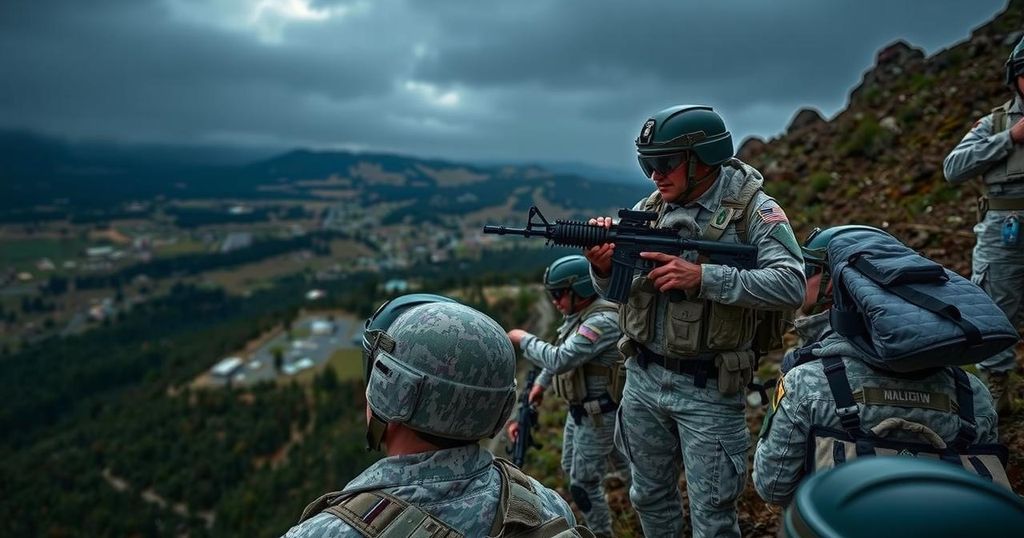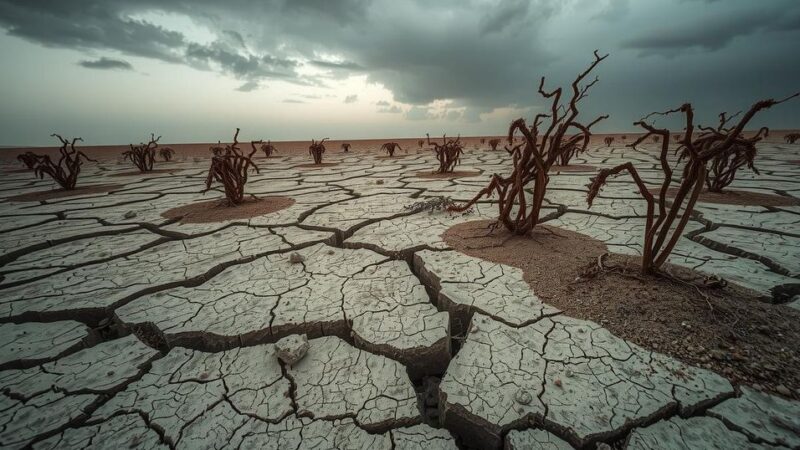The Russian military has increased its presence in southern Syria to deter Israeli escalation as tensions rise over Israel’s construction of a separation wall in the Golan Heights, prompting international law concerns. Former Israeli officials warn of potential military action if Syrian territories are used against Israel. Increased Israeli airstrikes coincide with the growing influence and operations of Russian and Syrian forces in the region.
The Russian military has significantly boosted its presence in southern Syria, establishing nine observation posts in coordination with the Syrian government to deter potential Israeli escalations, as reported by Lebanese daily Al Akhbar on November 19. This enhancement is concentrated in the Daraa and Quneitra governorates adjacent to the Israeli-occupied Golan Heights, coinciding with Israel’s renewed construction efforts on a separation wall along the disengagement zone. This wall is akin to those erected along Israel’s borders with Lebanon, Egypt, and Gaza, raising concerns regarding adherence to longstanding ceasefire agreements.
Recent reports indicated that the United Nations has accused Israel of violating a 50-year truce by initiating these construction projects. Satellite imagery released by the Associated Press has corroborated these claims, showing extensive infrastructural development and military presence, including armored vehicles and tanks. In light of these developments, former Israeli defense minister Avigdor Lieberman has cautioned that if Syria continues to serve as a base for hostile operations against Israel, Israel may consider seizing control of the Syrian segment of Mount Hermon indefinitely.
The increased Israeli activities in the Golan Heights emerge as joint operations between Russian and Syrian forces target extremist groups backed by Western countries. Russian forces reportedly conduct aerial and ground surveillance to bolster stability and assist in the return of displaced residents in areas that historically housed Israeli-supported militias before a Russia-mediated disengagement agreement reinstated Syrian government control.
International law experts, such as The Cradle columnist Haidar Mustafa, assert that Israeli actions in the Golan Heights, including enforcing citizenship, expanding settlements, and encroaching on the disengagement zone with a separation wall, represent clear violations of international legal norms. Correspondingly, there has been a marked increase in Israeli airstrikes against Syrian targets following the escalation of conflict with Lebanon, with numerous strikes occurring near the Russian military base at Hmeimim, compelling the activation of air defense measures by Russian forces.
The situation surrounding the Golan Heights has long been a point of contention, where the geopolitical interests of Russia, Israel, and Syria intersect. Since the civil war in Syria began, Russia has emerged as a key player in stabilizing President Bashar al-Assad’s regime, concurrently countering Israeli influence in the region. Israel has viewed the instability in Syria as a potential threat, justifying its military operations under the pretext of countering Iranian and extremist group presence near its borders. The ongoing construction of a separation wall by Israel in the Golan Heights has raised significant legal and diplomatic issues, particularly regarding adherence to previous ceasefire agreements and the rights of the Syrian population in these territories.
The augmentation of Russian forces in southern Syria, coupled with Israel’s construction activities in the Golan Heights, exemplifies the increasing complexity of the region’s geopolitical landscape. The violations of international law and longstanding ceasefire agreements present significant hurdles to peace and stability. As tensions escalate between Israeli and Syrian forces, the implications for regional security and international relations remain profound, necessitating careful monitoring and diplomatic engagement to avert further conflict.
Original Source: thecradle.co







